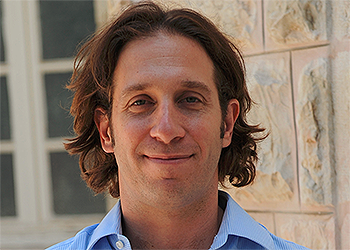Jeremy Bailenson Faculty»

Professor
bailenso@stanford.edu
650.723.0701
Rm. 344, by appt.
web.stanford.edu/~bailenso
Jeremy Bailenson is founding director of Stanford University’s Virtual Human Interaction Lab, a Professor in the Department of Communication at Stanford, a Senior Fellow at the Woods Institute for the Environment, Faculty Director of Stanford’s Digital Learning Forum, and a Faculty Leader at Stanford’s Center for Longevity. He earned a B.A. cum laude from the University of Michigan in 1994 and a Ph.D. in cognitive psychology from Northwestern University in 1999. After receiving his doctorate, he spent four years at the University of California, Santa Barbara as a Post-Doctoral Fellow and then an Assistant Research Professor.
Bailenson’s main area of interest is the phenomenon of digital human representation, especially in the context of immersive virtual reality. He explores the manner in which people are able to represent themselves when the physical constraints of body and veridically-rendered behaviors are removed. Furthermore, he designs and studies virtual reality systems that allow physically remote individuals to meet in virtual space, and explores the manner in which these systems change the nature of verbal and nonverbal interaction. In particular, he explores how virtual reality can change the way people think about education, environmental behavior, empathy, and health.
His findings have been published in over 100 academic papers in the fields of communication, computer science, education, environmental science, law, medicine, political science, and psychology. His work has been consistently funded by the National Science Foundation for fifteen years, and he also receives grants from various Silicon Valley and international corporations. Bailenson consults regularly for government agencies including the US Army and Air Force, the Department of Defense, the Department of Energy, the National Research Council, and the National Institute of Health on policy issues surrounding virtual reality.
His book Infinite Reality, coauthored with Jim Blascovich, was recently quoted by the Supreme Court outlining the effects of immersive media.
